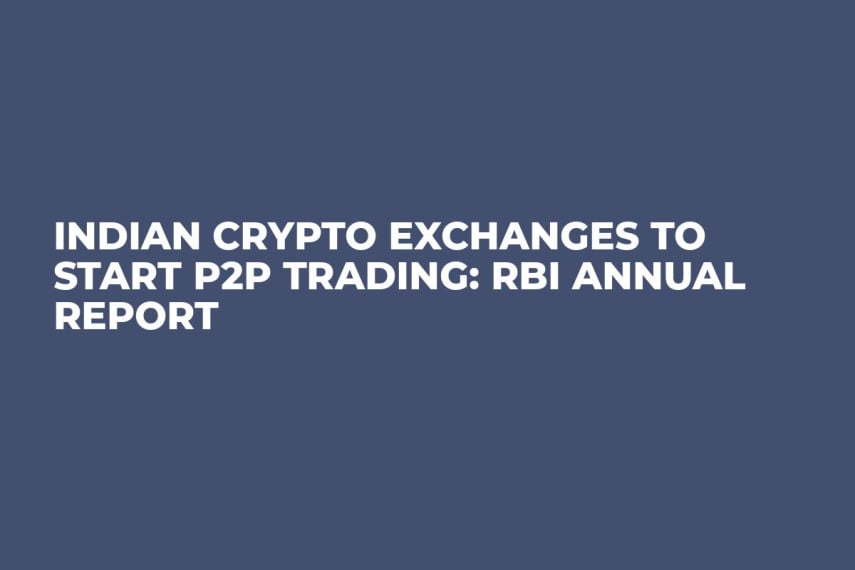
On Wednesday, the Reserve Bank of India (RBI) released its annual report. It contains a section covering cryptocurrency, insisting this new technology may cause gradual risks and expecting local exchanges to start crypto trading on the peer-to-peer (P2P) basis.
RBI is concerned as before
The authors of the report believe that the ecosystem of online decentralized money can impact the current system of financial settlement and payments. They reckon that an active use of virtual coins may bring on certain negative changes in the country’s monetary policy. Crypto, in their view, is still a threat to investors.
Going for the P2P mode
The RBI report also underlines that the authorities find it necessary to watch the sphere of digital assets very closely.
Back in April, the central bank of India issued a circular prohibiting all financial institutions, including banks, to conduct any deals with crypto exchanges and startups working with virtual assets.
Now, RBI in its report shows a concern that some of the local crypto trading companies may shift to the peer-to-peer mode to avoid the official RBI sanctions. This is, reportedly, already becoming a popular solution in India.
The central bank is concerned with extra risks
RBI believes that virtual coins are vulnerable to additional risks, such as hacks, malware attacks and operational risks since they are usually stored in “hot” online wallets. As for the criminal side, the bank is certain that this new technology can be first of all embraced by bad players for criminal activities and avoiding paying taxes.
However, the report also reminds that the government and RBI have set up a task force to study and research electronic currencies in order to find the best and safest way of launching a state centralized cryptocurrency.


 Vladislav Sopov
Vladislav Sopov Alex Dovbnya
Alex Dovbnya Arman Shirinyan
Arman Shirinyan Caroline Amosun
Caroline Amosun